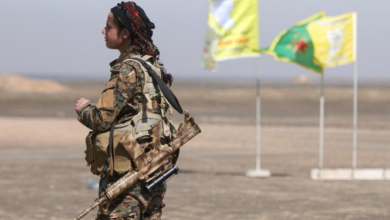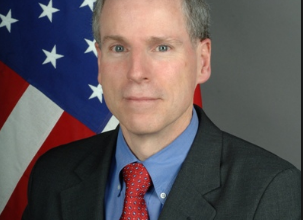Why a hope in the world since Biblical times is officially over

A “promised land” has been a constant hope in the world since the Lord promised what became Israel to Abraham, in the Book of Genesis (15:18). Some centuries later, the Lord told Moses (according to Numbers 34) to lead the Israelites out of Egypt to occupy a somewhat smaller space than he had outlined to Abraham — the land east from the Jordan River to the sea.
Zionism was built on these promises, its fulfillment in modern times powered by the Holocaust’s message that defensible land was necessary for the continued existence of the Jews. It’s gone well and badly. In his 2013 book “My Promised Land,” a fine confrontation by an Israeli journalist of the grace and disgrace of his state, Ari Shavit writes: “Israel is the only nation of the West that is occupying another people. On the other hand, Israel is the only nation in the West that is existentially threatened… intimidation and occupation have become the twin pillars of our existence.”
That’s the condition of the “real” promised land. Others were less canonically blessed, but did deliver on some of their promise. The promised land for centuries — since the Pilgrims landed on Plymouth Rock, Massachusetts, in 1620 — has been North America. The United States promised freedom to the masses yearning to breathe free, or at least make a living. It’s the only country in the world that has, at what was once its main entry point, a statue which promises a welcome to all the huddled masses — a welcome which, in advances and retreats, has remained till now.
Today that spirit of inclusion is waning. Figures from the Pew Research Center show that a majority of Republican voters want a strong barrier along the border with Mexico, and a rising minority doesn’t want automatic U.S. citizenship conferred on the immigrants’ children. Democrats are different: a decade ago, a majority of Democrats and Republicans agreed that illegal immigration should be checked. Today the parties diverge sharply — with less than a third of Democrats holding to that belief, against nearly two-thirds of Republicans. Still, a solid bipartisan majority of 72 percent doesn’t want mass deportation of illegal immigrants if they meet certain requirements: perhaps realizing that to do so would need require the deployment of most of the army, and approach civil war.
Yet popular views shift as elite positions do. When Donald Trump made the Mexican wall and forced repatriation centerpieces of his campaign last autumn, and began winning, his fellow Republican candidates slithered after him. Has Trump’s blunt demand that illegal immigrants be deported and Muslims kept out released popular frustrations and directed them at foreign targets –– so that what had been relatively liberal views are now overturned, including among some Democrats? The New York Times noted that Trump carried both working class and upper middle class areas in his Michigan victory this week. Something is happening, but we don’t know what it is. It is clear, though, that the promise of the land is being sharply reduced.
Europe has never occupied the same place as America, which for centuries welcomed non-conformist English, dispossessed Scots, starving Irish, dirt-poor Italian and Scandinavian peasants, fleeing Jews and many more as they passed through Ellis Island. But Europe is itself a land of promise — of survival for peoples yet more desperate than the Transatlantic voyagers, at first welcomed by some states, Germany and Sweden above all — now spurned, as citizens revolt and stories of attacks, rapes and riots become more common.
Razor wire and fences are up in increasing numbers of states, more are refusing to take the quotas of immigrants proposed by the EU, and far-right, anti-immigrant parties top the opinion polls in Sweden, France and the Netherlands.
The European Union, a much battered, some argue doomed, entity, has tried to strike a dealwith Turkey. Under it, every Syrian immigrant who came to Europe without documentation and thus illegally (most) would be returned to Turkey, through which the majority come. For every one returned, a Syrian in a camp in Turkey would be resettled in the EU. The plan — yet to be ratified — is an attempt to impose order. It’s also meant to discourage: to keep people where they are.
The promise of a continent willing to share its space and wealth has gone. Europe — as the anti-immigrant, murdered, Dutch politician Pim Fortuyn used to say of the Netherlands — is full.
This will not be reversed. Even those countries where the birth rate is falling and more working-age immigrants are needed will prefer to offer subsidies to larger families — as France has done, successfully — and strictly control immigration. The masses must huddle at home.
Can some good come of that? It can, but it won’t be cheap. It will need a change of view: a commitment to assist poor countries, to build support for policies which will encourage people to stay where they are born and improve their societies — as the Oxford economist Paul Collier has recently argued.
For Collier, the problem of mass immigration is twofold. First, it leaves most of the poor where they are: it’s generally the better off who can afford to travel. And because of that, it impoverishes the society by leeching away its more economically active and educated — those who could make a difference.
Making a difference, though, is beyond the reach of poor societies with little to invest and a narrow educated class. That is where the rich countries of the world must intervene: by partnering with states working to improve their economies, helping to educate their people and giving them sufficient freedom to display and be rewarded for their talents.
The United States is pioneering a move in that direction. The $750 million aid package to the Northern Triangle of states in Central America — El Salvador, Guatemala and Honduras — was prompted by the flood of immigrants from these states: and by the same conclusion as Collier’s. As Vice President Joe Biden put it — investment can assist in making these countries “middle class, democratic and secure.”
Nothing in that is easy: it will cost many billions, last for decades, hit many barriers. But the future of the poor world — perhaps of the world — will depend on such a movement. For if the wretched do not have a promised land, and their own remains a zone of war and fear, they will try to take what is not given, and provide ever more support to terrorist groups whose attraction is their hatred of the Western world.
Reuters



